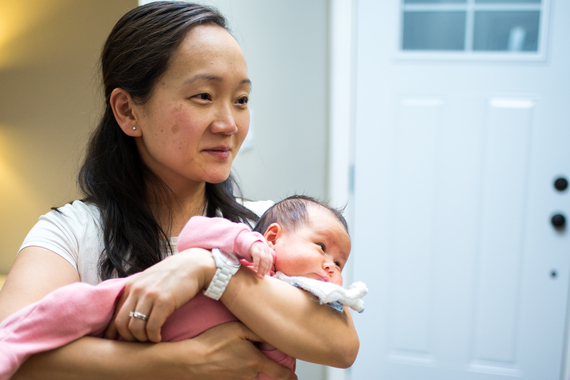
Japan's population is falling, officially. Yearly predictions had suggested it was so, but the country's census, conducted every five years since 1920, had never previously recorded a fall. It has now.
Between 2010 and 2015 Japan's population shrunk by just under a million people, to 127.1 million.
The United Nations predicts Japan's population will fall to 83 million by the end of this century, with more than a third of Japanese aged 65 or older by then.
The cause of this reduction is obvious. Japan's birth rate per woman is around 1.4. To keep population roughly stable requires an average of 2.1 births -- the so-called replacement level.
Japan is not alone. Other developed economies where population is expected to fall markedly include South Korea, Germany, Spain and Italy.
As many developed nations grapple with the implications of a falling population, those of us who work in the area of sexual and reproductive health and rights face a challenge too. How should we respond to these changing demographics? The answer is by implementing a rights-based supportive approach for all women.
That means firstly, continuing to promote and protect the rights of every woman to decide if she wishes to have children, if she does, how many children she wishes to have, and when she wishes to have them.
Those who suggest one way to raise fertility rates is to undermine reproductive health rights where they have been hard won, such as the right to contraception and to safe abortion, are wrong.
There are plenty of countries where such rights barely exist and fertility rates are also low, regardless. In South America, where access to contraception and safe abortion is impossible for tens of millions of women, many countries now have fertility rates at or below replacement level, and they are projected to fall further.
Secondly, we can highlight the barriers that may affect a woman's ability to choose to have the number of children she would like. There is evidence to suggest women in countries with some of the lowest fertility rates would like to have more children, but social and economic factors mean they do not.
This gap between actual and "desired" fertility has been known of for years. Almost a decade ago a report from the Organisation for Economic Cooperation and Development suggested it was largest in developed countries with the lowest birth rates -- including Japan and South Korea.
Other research in Japan itself appears to support this suggestion. More than 1,600 women of all ages were interviewed at clinics in Hyogo Province, in a study published by the Reproductive Health Journal in 2013. Their mean desired number of children was 2.55, roughly a child per woman more than the current birth rate.
Other developed nations have found ways of increasing low birth rates they have perceived as a challenge, through supporting individual choices. In the mid-1990s fertility rates in France stood at around 1.6. In little more than a decade they were back to two births per woman.
France offers a battery of policies intended to give parents greater economic support should they choose to have children and legal protection to make combining work and having children easier. They include generous leave entitlement for working parents and access to good and reasonably priced childcare.
It's also important to consider other barriers which may limit choice for women. The impact of having children on empowerment in employment and equal opportunity for growth is one.
A survey last year of more than 9,500 women across G20 countries, conducted for the Thomson Reuters Foundation and Rockefeller Foundation, suggested women in the most developed countries had the greatest worry that having children would damage their career. Just 17 percent of Japanese women surveyed felt it would not, the lowest national score. German women were hardly any more confident, with just 21 percent believing it would not.
Japan has a minister charged with boosting its birth rate. Central to any policy must be the recognition of every woman's right to decide whether to have children, and how many to have.
Such an approach would aim to extend a woman' right to choose, and support her in any way possible in the choices she wishes to make.
Image credit: https://www.flickr.com/photos/david_martin_foto/
